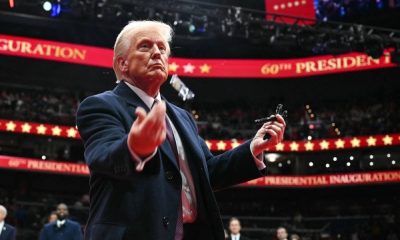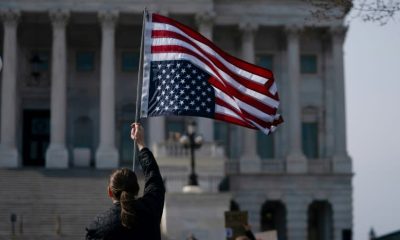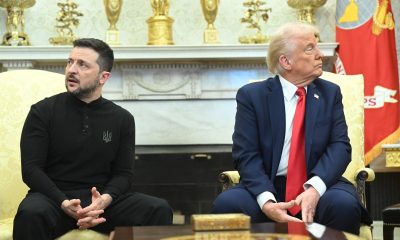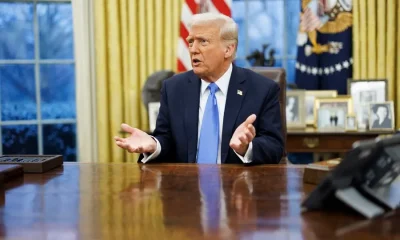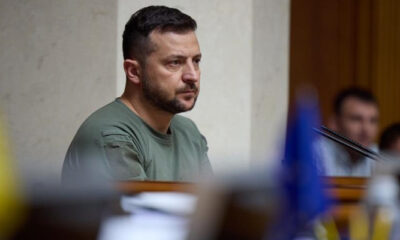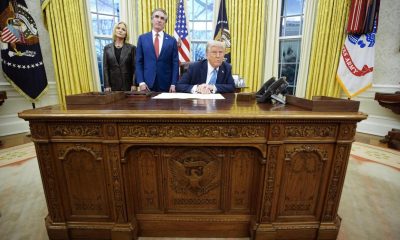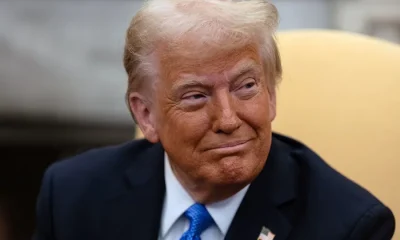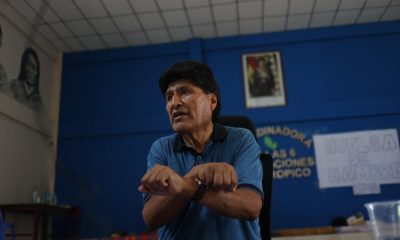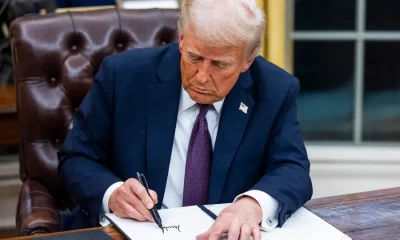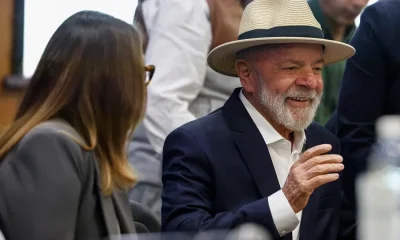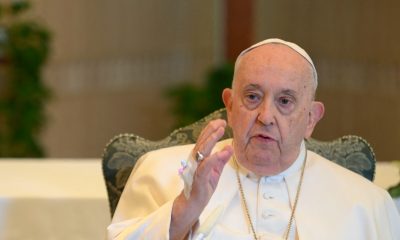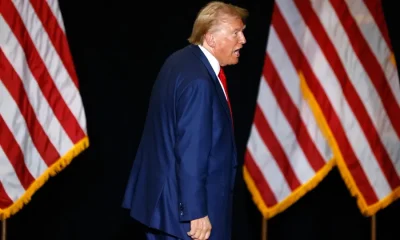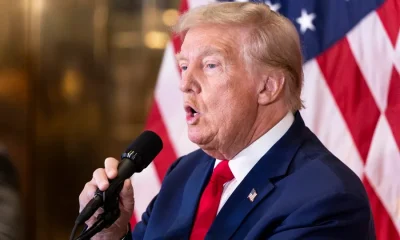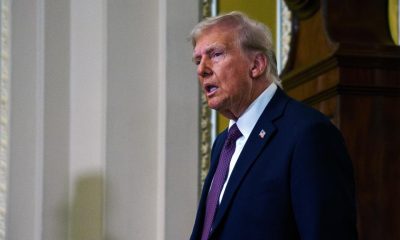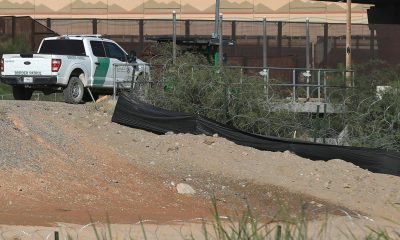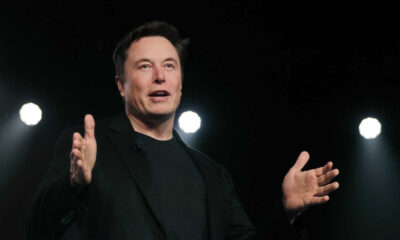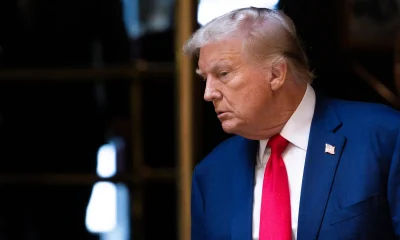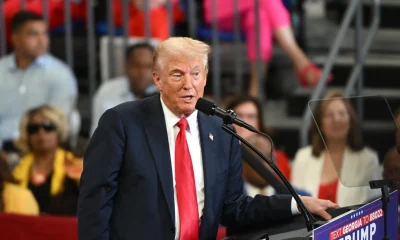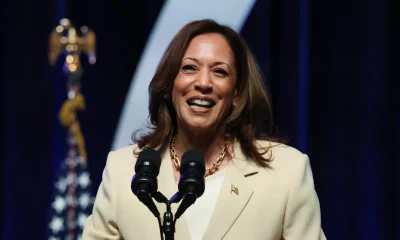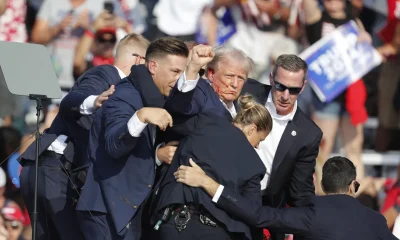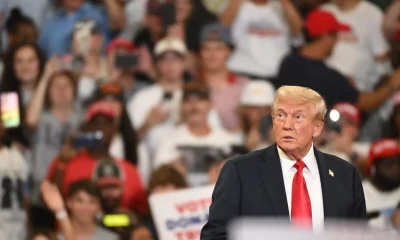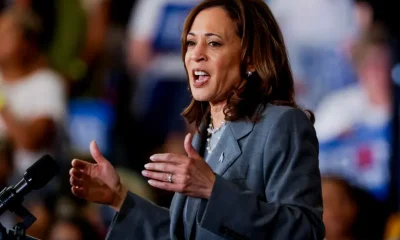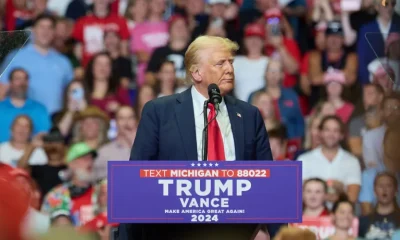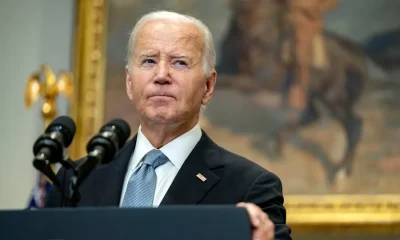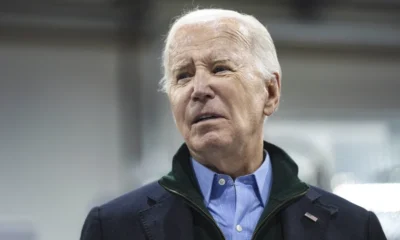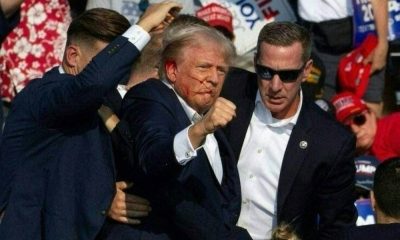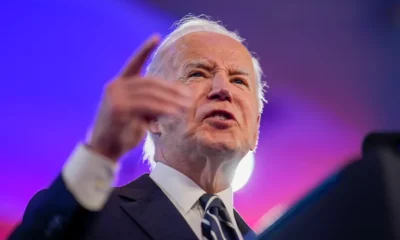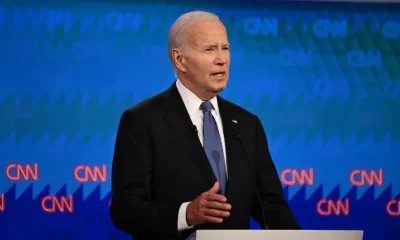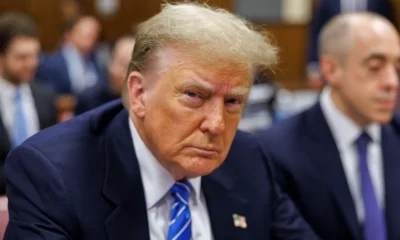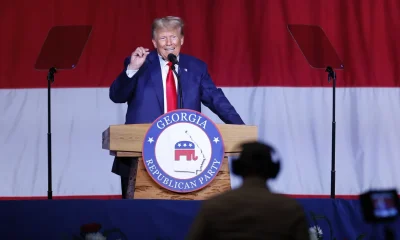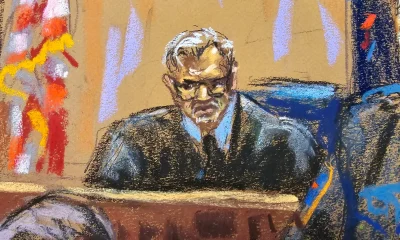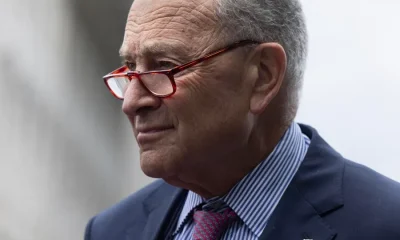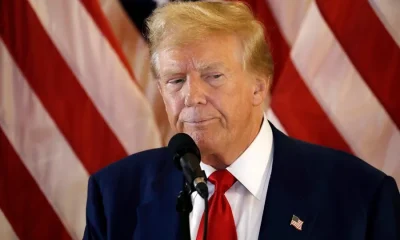International
Trump prioritized silence of Stormy Daniels “for the campaign, not for Melania,” according to his former lawyer

Donald Trump’s former lawyer and former right-hander, Michael Cohen, assured on Monday that the former American president, accused of falsifying accounting documents to buy the silence of the porn actress Stormy Daniels, acted in this way to protect his 2016 electoral campaign, and not so much his marriage to Melania.
“I want it to be hidden until the elections are passed (2016). If I win, it will not be relevant because I will already be president; if I lose, I won’t even care,” Cohen paraphrased Trump, adding that “it was for the campaign, not for Melania” Trump.
Some statements that provoked the first ostensible gestures of denial with the head by the former president during this Monday’s session in the New York court, where he has even remained prolonged moments with his eyes closed.
“I didn’t even think about Melania. It was all for the campaign,” Cohen repeated.
Melania and Donald Trump met in 1998, when he was 52 years old and she was 28, and the couple arrived at the altar in 2005, just a year before the alleged slip with Daniels; an ‘affair’ that, if proven, took place when she was pregnant.
In addition, Barron, the only son resulting from the marriage between Trump and Melania, was born on March 20, 2006 and grew up in the attic of the Trump Tower, where, according to the Prosecutor’s Office, the agreements of the former head of the American Executive were forged to hide this mess of skirts and another with Karen McDougal, a Playboy model.
Cohen, in the same way, revealed on Monday in the criminal trial that the former president faces in New York how he insisted that “not come to light” alleged extramarital relationships that could have affected his 2016 campaign.
“The purpose was to prevent the story from being sold or marketed to an external source,” Cohen explained after explaining how his role in intermediation with the American tabloid The National Enquirer was.
According to his account, Cohen was in charge of executing Trump’s requests for the aforementioned media, led by media tycoon David Pecker, to exercise the tactic known in English as ‘catch and kill to acquire the publishing rights of these alleged ‘affaires’, but finally leave them stored in a drawer and never see the light.
Trump is accused of forging accounting documents to buy the silence of the porn actress Stormy Daniels and thus safeguard her reputation in the face of the 2016 elections, in which she would eventually end up imposing.
The scheme, according to the Prosecutor’s Office, consisted of Cohen advancing the payment of $130,000 to Daniels so that his alleged relationship was not revealed, which then had to be reimbursed to the former lawyer, as part of a plot that served to “corrupt” the aforementioned elections.
Another of the women’s names highlighted in the case is that of Karen McDougal, a Playboy model who also tried to filter an affair with Trump and for whose silence Cohen contacted Pecker.
First, I “asked” Trump “if he knew who he was,” Cohen recalled to questions from the Prosecutor’s Office, to which the former president allegedly replied: “She is very beautiful.”
“I told him ‘okay’, but right now he’s trying to sell a (love) story,” Cohen recalled.
“Make sure it doesn’t come to light,” Trump would answer, according to Cohen assuming that “history had to be acquired” by applying the ‘catch and kill’ technique.
“What he told us (Pecker) was that he could be attentive to anything negative about Mr. Trump and that he could help us know in advance what was going to come out and try to prevent it from coming out,” Cohen said, who detailed that the media executive ended up being paid $150,000 to silence the story.
On the other hand, Cohen added that they were also aware of the publication of negative stories about Trump’s rivals in The National Enquirer and set the example with one about Hillary Clinton: “Hillary Clinton appeared with very thick glasses, among some accusations that she had a brain injury.”
In addition, Cohen said that Trump was “enchanted” with the role of this tabloid because his great competitive advantage was that it was present in most “cash registers of supermarkets and grocery stores,” suggesting that it reached a large part of society.
Cohen also narrated how he forged his relationship with Trump in the early 2000s to be part of his close circle by making important transactions or resorting to invoices that he considered “unfair.”
“I felt like I was at the top of the world when (Trump) said that I was fantastic or great,” Cohen said.
Trump made all the requests, according to Cohen, in person because the former head of the US Executive “never” had a personal email address.
“Part” of the work that he entrusted to him was, according to his story, also to mediate and even “enable” those who signed articles with some kind of criticism of the former president.
“If there was an article that bothered him, I was also in charge of talking (with journalists),” he explained about his work, which he summed up in eminently “making happy” the presumptuous candidate of the Republican Party in the U.S. presidential elections in November.
Become one of Trump’s main enemies today, Cohen had already declared against his former chief during the civil trial for fraud that was held in New York where he blamed him for fictitiously inflating his assets to obtain better credit conditions. That process resulted in a fine of 364 million dollars that the tycoon is appealing.
International
Football Fan Killed in Clashes After Colombian League Match
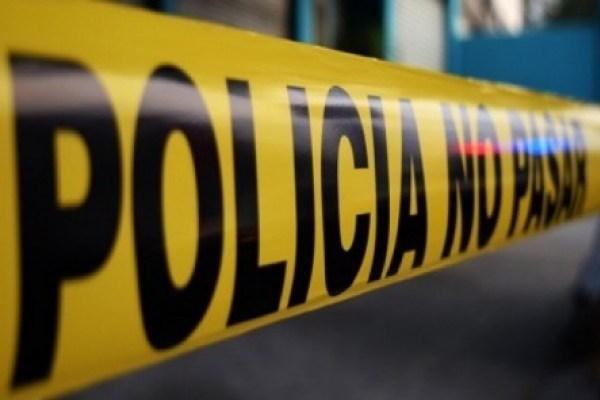
Fans of Cúcuta Deportivo and their traditional rivals Atlético Bucaramanga clashed outside the stadium following their local league match on Tuesday, leaving one supporter dead and several others injured.
The deceased fan was stabbed, according to a senior police official in Cúcuta who confirmed the cause of death in a video statement. Local media reported that the victim was a supporter of the visiting team, Atlético Bucaramanga.
The match ended in a 2-2 draw. Authorities had banned the entry of Atlético Bucaramanga’s organized supporters into the stadium in an effort to prevent disturbances.
Despite the restrictions, violence broke out in the surrounding areas after the game. Among the injured were three police officers, an institutional source told AFP.
The incident adds to a series of recent violent episodes linked to Colombian football. The most recent occurred in December, when supporters of Atlético Nacional and Independiente Medellín clashed in the stands and on the pitch, leaving 59 people injured.
International
Missing Spanish Sailor Rescued After 11 Days Adrift in Mediterranean

The man had departed from the port of Gandía, on Spain’s eastern coast, with the intention of reaching the southern Spanish town of Guardamar del Segura, a journey of about 150 kilometers, a spokesperson for Spain’s maritime rescue service told AFP.
Search boats and aircraft were deployed on January 17, but the operation was called off on January 22 after efforts proved unsuccessful. Alerts were then issued to vessels navigating the area in case they spotted any signs of the missing sailor.
As hopes were fading, a surveillance aircraft from the European Union’s border agency Frontex spotted the sailboat on Tuesday, along with a person signaling for help, approximately 53 nautical miles northeast of Bejaia, Algeria.
A nearby vessel, the Singapore-flagged bulk carrier Thor Confidence, carried out the rescue and is expected to bring the man to an end to his ordeal when it arrives on Thursday in the southern Spanish port city of Algeciras.
Maritime rescue services shared images on social media showing a small white sailboat drifting at sea and secured alongside the much larger ship.
It remains unclear how the sailboat ended up hundreds of kilometers off its intended route or how the man managed to survive for so long alone in open waters.
International
Rubio Says U.S. Could Participate in Follow-Up Russia-Ukraine Talks

The United States could join a new round of talks this week aimed at ending Russia’s invasion of Ukraine, Secretary of State Marco Rubio said on Tuesday.
Teams from Kyiv and Moscow met last Friday and Saturday in Abu Dhabi in their first publicly acknowledged direct negotiations to discuss the peace initiative promoted by former U.S. President Donald Trump.
“They are going to hold follow-up talks again this week,” Rubio told the Senate Foreign Relations Committee. “There could be U.S. participation.”
However, Rubio suggested that Washington’s role may be more limited than during last week’s discussions, which included Steve Witkoff, the president’s special envoy, and Jared Kushner, Trump’s son-in-law.
The secretary of state indicated that progress may have already been made on security guarantees for Ukraine, one of Kyiv’s key demands in any agreement with Moscow after nearly four years of Russian invasion.
“There is one remaining issue that everyone is familiar with, and that is the territorial claim over Donetsk,” Rubio said, referring to the eastern Ukrainian region that Russia wants Ukraine to cede.
“I know that active efforts are underway to see whether the positions of both sides on this issue can be reconciled. It remains a bridge we have not yet crossed,” he added during the hearing.
Rubio acknowledged that the territorial question would be particularly difficult for Ukraine to resolve.
-

 Central America3 days ago
Central America3 days agoGuatemala seizes over a ton of cocaine hidden in flour at Pacific port
-

 International4 days ago
International4 days agoDelcy Rodríguez seeks political agreements after Maduro’s ouster
-

 International3 days ago
International3 days agoHistoric snowstorm paralyzes Toronto after 60 centimeters of snow
-

 International3 days ago
International3 days agoSpain’s irregular migrant population rises to 840,000, study finds
-

 Central America2 days ago
Central America2 days agoGuatemala Police Arrest Prison Guard Caught in the Act of Extortion
-

 International4 days ago
International4 days agoFederal immigration agents kill man in Minneapolis, sparking protests and outrage
-

 Central America2 days ago
Central America2 days agoHonduras swears in conservative president Asfura after disputed election
-

 International22 hours ago
International22 hours agoFootball Fan Killed in Clashes After Colombian League Match
-

 Central America2 days ago
Central America2 days agoBukele leads public trust rankings as UCA survey highlights gains in security
-

 International2 days ago
International2 days agoWinter Storm Fern Leaves 30 Dead and Over One Million Without Power Across the U.S.
-

 International2 days ago
International2 days agoDoomsday clock moves to 85 seconds before midnight amid rising global risks
-

 Sin categoría2 days ago
Sin categoría2 days agoEight Killed in Series of Armed Attacks in Ecuador’s Manabí Province
-

 International3 days ago
International3 days agoRights group says nearly 6,000 killed in Iran protest crackdown
-

 International22 hours ago
International22 hours agoRubio Says U.S. Could Participate in Follow-Up Russia-Ukraine Talks
-

 International22 hours ago
International22 hours agoMissing Spanish Sailor Rescued After 11 Days Adrift in Mediterranean
-

 International2 days ago
International2 days agoSpain approves plan to regularize up to 500,000 migrants in Historic Shift
-

 Central America22 hours ago
Central America22 hours agoGuatemala President Says Starlink Terminal Found Inside Prison
-

 International3 days ago
International3 days agoVenezuela frees at least 80 political prisoners, NGO says
-

 Sin categoría2 days ago
Sin categoría2 days agoEl Salvador Launches Fourth Year of Ocean Mission to Protect Marine Ecosystems
-

 International3 days ago
International3 days agoEU launches new probe into X over AI-generated fake nude images
-

 International3 days ago
International3 days agoSevere winter storm grips U.S., leaves multiple dead as extreme cold persists
-

 International3 days ago
International3 days agoFrance debates ban on social media for children under 15





























